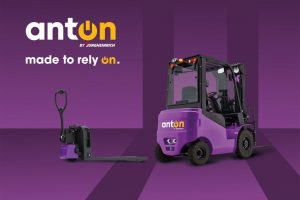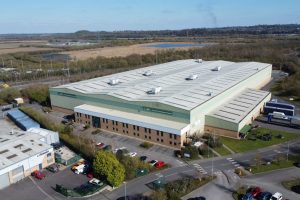Greening the warehouse
Alexander Baal says lithium powered forklifts will help the UK reach difficult environmental targets.
IN JUNE 2019, the UK became the first major economy in the world to pass laws guaranteeing an end to its contribution to global warming by 2050.
Lithium-Ion battery technology in the material handling industry will be an instrumental solution in supporting the government’s aggressive environmental targets, while also delivering valuable productivity gains.
Part of the government’s initiative to tackle climate change is to remove the red diesel tax exemption. Many will therefore need to overhaul their diesel equipment and consider more energy efficient power alternatives, such as Lithium-Ion. Addressing these issues now will increase efficiency and sustainability in the long-term, preventing any damage to business operations and ensure continuity.
Separate to the plans around red diesel, research by Calor found that 38% of forklift users are facing pressures to reduce their carbon emissions, and although 54% of those surveyed recognised that carbon reduction was a very important consideration, there were other priorities ahead of this. Above carbon concerns were cost, fuel efficiency, machinery downtime, security of supply and level of customer service from the fuel provider.
{EMBED(1201782)}
Lithium-ion batteries offer many operational and commercial benefits compared to diesel or gas-powered trucks or even lead-acid batteries. Increased efficiency and reliability is achieved as Lithium-ion delivers energy for multiple shift applications without the need for battery changes, due to its rapid charging times and the possibility of opportunity charging during short breaks. Additionally there is a very small drop in remaining capacity experienced over the entire lifecycle of the battery. Savings are made as no maintenance is required and no period of battery resting is needed after each charge. During the recharge process, less energy is wasted as heat, thus saving money, and during the truck’s operational shift, energy is harvested through direction changes and braking – resulting in lower energy costs.
An electric forklift may have a higher initial cost than its diesel or gas counterpart, however, it also benefits from lower maintenance costs as fewer service items are involved. This means the total cost of ownership can be significantly lower, especially when considering the stability of the price for electricity compared to red diesel.
Not only does Lithium-ion prove cost effective with the added benefit of having rapid return on investment (ROI), but it has the ability to support most 24×7 logistics operations with its fast charging capabilities, meaning operators won’t need to be concerned about machinery downtime.
Organisations have the opportunity to proactively prepare for a sustainable future and not be caught off-guard. While it may seem like a significant undertaking to upgrade materials handling equipment, there are solutions available now that can support this shift in addition to delivering significant cost, efficiency and productivity benefits.
Alexander Baal, director sales operations, Jungheinrich UK
For more information, visit www.jungheinrich.co.uk






